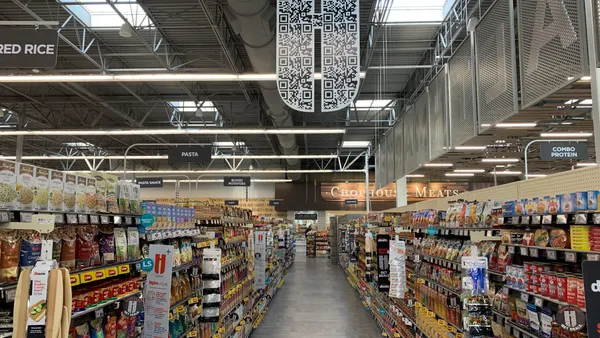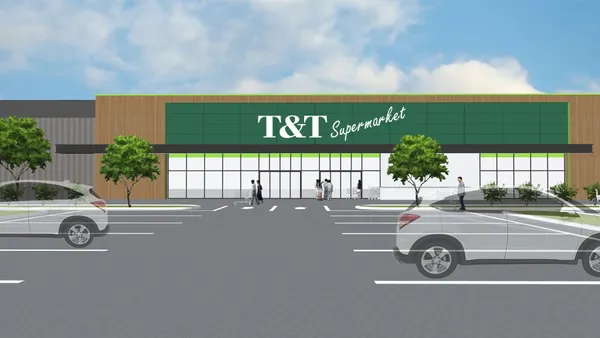Dive Brief:
- Unions representing about 47,000 grocery workers in Southern California have reached a tentative deal with Ralphs, Albertsons and Vons, press representatives from the chains and the UFCW confirmed to Grocery Dive. Union officials representing seven local chapters say they will recommend members approve the agreement when voting begins this week. Results of the vote will be announced Thursday.
- Details of the agreement, which the two sides reached early Sunday, were not disclosed. Ralphs spokesman John Votava said the deal includes "increased wages, continued premium health care coverage and pension stability." Ralphs previously said it offered $1.10 in hourly pay increases over the three-year contract term, but on Sunday would not say if that offer still stood.
- Employees at more than 500 stores have been working without a new three-year contract since March 3. Members authorized a strike in June, and last month began appealing to shoppers outside stores. "We were successful in getting a deal that will make our lives better," John Grant, president of UFCW Local 770 wrote in a statement.
Dive Insight:
Although details of the agreement have not been disclosed before workers get a chance to review them, it appears the continuation of benefits in tandem with wage increases helped seal the deal with union officials. The UFCW previously stated Ralphs and Albertsons officials were offering insufficient wage increases and wanted to alter healthcare funding for workers.
Assuming workers vote in line with the UFCW’s recommendation, Albertsons and Kroger-owned Ralphs will avert a costly strike. The companies account for around 40% of the $45 billion grocery market in Southern California, and a work stoppage would hand business over to Aldi, Sprouts Farmers Market and other competing chains at a time when the region's grocery landscape is rapidly evolving.
Ralphs and Albertsons would also struggle to win the public relations war. Public approval of labor unions is at a near 50-year high, according to a Gallup poll released late last month, and younger consumers tend to hold more favorable opinions of unions over corporations.
A five-month-long grocery strike that began in 2003 cost Ralphs, Albertsons and Vons/Safeway their collective hold on the Southern California grocery market, giving a Whole Foods, Trader Joe's and others a vital boost.
Company officials may have also been influenced by what happened over on the East Coast this spring. There, Stop & Shop endured an 11-day strike that cost the company $100 million, plus the money it's had to spend on promotions to lure customers back to the stores.
Labor unions have a diminished role in grocery compared to decades past, but they're emboldened by public support and successful strikes like the one at Stop & Shop as well as headline-grabbing teacher walkouts that rippled across the country beginning last year. In 2018, more than 485,000 workers took part in work stoppages — the most since 1986, according to the Labor Department.
Additional grocery workers on the West Coast are trying to press their advantage. Last month, 20,000 UFCW workers from Fred Meyer, QFC, Safeway and Albertsons stores in Oregon and Southwestern Washington authorized a strike following more than a year of negotiations.
Albertsons, Kroger and other grocers with union workers have to balance worker benefits and compensation with the need to stay competitive. These companies are going up against non-union chains like Aldi and Whole Foods that don't bear the same cost burdens and threats of work stoppages.













